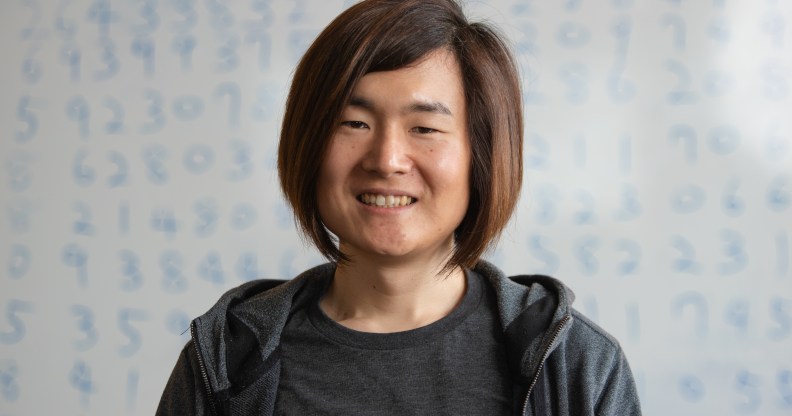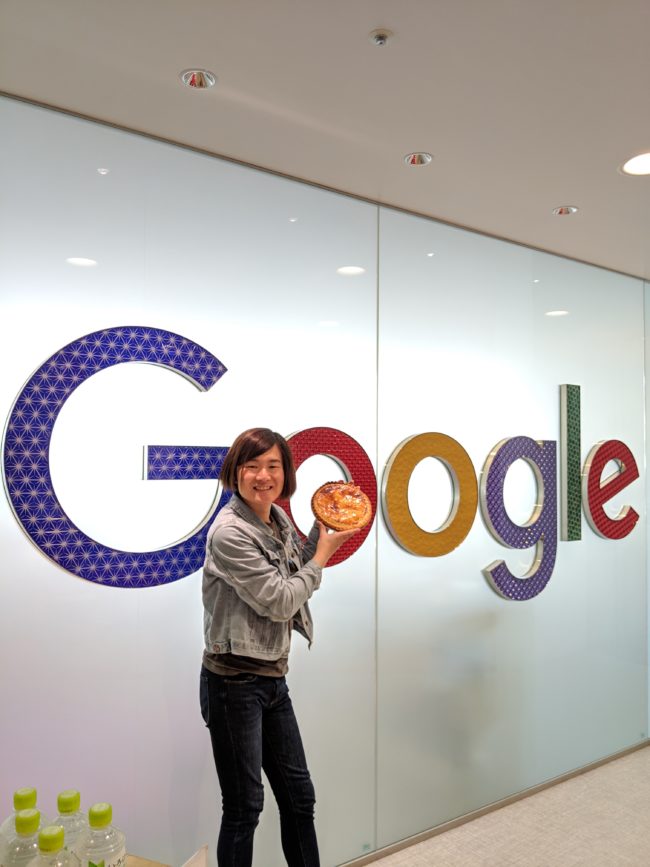Google’s queer female pi world record breaker hopes to inspire LGBT community

Emma Haruka Iwao calculated pi to 31 trillion digits, smashing the previous record of 22 trillion. (Google)
Emma Haruka Iwao, a queer software engineer at Google, who calculated pi to a new world record, has said that she hopes her achievement will inspire others in the LGBT+ community.
Speaking to PinkNews, Iwao, who is from Tokyo, Japan, said she believed that the work of those from the LGBT+ community, women, people of colour and other marginalised groups have all too often been erased in history.
Iwao, a developer advocate for the Google Cloud Platform, managed to calculate pi to 31 trillion digits, surpassing the previous record of 22 trillion.
Her world record was revealed by Google to coincide with Pi Day on March 14.
“As an openly queer woman and software engineer, visibility is important for me and my community,” Iwao explained.
“Being recognised in this way by Guinness is such an honour, and I can only hope that it will serve as a source of inspiration for the LGBTQ+ community and beyond.”
Google developer Emma Haruka Iwao: I hope my world record will act as a “source of inspiration for the LGBTQ+ community”
The 34-year-old software engineer explained that she has been intrigued by pi—the ratio of a circle’s circumference to its diameter, represented by the Greek letter “π”—from the age of 12, when she downloaded a program to calculate the figure on her computer.
“My computer wasn’t very powerful back then, so I didn’t get far,” added Iwao, “which is why [my] accomplishment is so exciting—it’s been a long time coming.”
“As an openly queer woman and software engineer, visibility is important for me and my community.”
—Emma Haruka Iwao
Although the first digits of pi are well known as 3.14, the number is infinite in length.
As pi follows no pattern, it is difficult to extend the sequence of its digits.

Iwao’s world record calculation was announced by Google to coincide with Pi Day. (Google)
Iwao, who is now based in Seattle, USA, took 121 days to complete the record-breaking feat by using Google’s cloud computing service, which required a colossal 170TB of data to achieve. (For context, 1TB of data makes up around 200,000 music tracks.)
Pi is regularly used by physicists, engineers and space explorers in important mathematical equations, including for multiple functions by NASA, such as figuring out the size of parachute needed to send a device to Mars’ surface.
Achievements of LGBTQ+ community have been sidelined throughout history, says Emma Haruka Iwao
Iwao went on to highlight how women and minority groups have been sidelined throughout history, including in the fields of computing and software, before outlining the continuing barriers facing the LGBT+ community in the US.
“Women, LGBTQ+ individuals, people of colour, people with disabilities and those from other marginalised groups have not always had their achievements—in many fields, not just data and software—acknowledged and appreciated,” she said.
“And their accomplishments are even more impressive when you consider the barriers they may have overcome.
“For example, there are many people of colour who attended separate and unequal schools.”
She continued: “Women were always not able to practice in fields like medicine.
“Even today in a number of countries and several US states, LGBTQ+ people face employment discrimination.”
In particular, she commented on the case of chemist Rosalind Franklin, who was responsible for much of the research and discovery work that led to the understanding of the structure of DNA.
“Despite her contributions,” said Iwao, “the Nobel Prize [in 1962] for this work went to three men [James Watson, Francis Crick, and Maurice Wilkins] after her death.”
Iwao is using her achievement to encourage other women and those in the LGBT+ community to explore the data and software engineering industries.
“To bring more women and LGBTQ+ people into these fields, I’d encourage them to think about what types of problems they’d like to solve,” she said.
“They can bring their unique skills, abilities and way of looking at the world to come up with solutions that no one has ever thought of before.
“They should also see themselves as representing users that may not currently be served by existing technology.
“Building technology that works for everyone takes everyone.”

